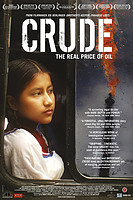After a week of marches and road blockades, Ecuador's national indigenous movement and the government of President Rafael Correa have initiated talks.
On Monday afternoon, a delegation of about 150 representatives from the three regional organizations of the Confederation of Indigenous Nationalities of Ecuador (CONAIE) attended a meeting with the President and his cabinet in Quito.
Economista Rafael Correa Delgado
Presidente Constitucional de la República del Ecuador
García Moreno y Chile
Palacio de Carondelet
Quito, ECUADOR
Ambassador Luis Benigno Gallegos Chiriboga
2535 15th Street NW
Washington, DC 20009
Telephone: [1] (202) 234-7200
FAX: [1] (202) 667-3482
Email: embassy@ecuador.org
Ecuadorian police have attacked peaceful Shuar Indigenous protesters near the town of Macas in the southern Ecuadorian Amazon, leaving at least one Shuar teacher dead.
 Come see the film that Chevron/Texaco doesn't want you to see about the "Amazonian Chernobyl." To see trailers and read about this award-winning Joe Berlinger documentary film, visit www.crudethemovie.com.&n
Come see the film that Chevron/Texaco doesn't want you to see about the "Amazonian Chernobyl." To see trailers and read about this award-winning Joe Berlinger documentary film, visit www.crudethemovie.com.&n